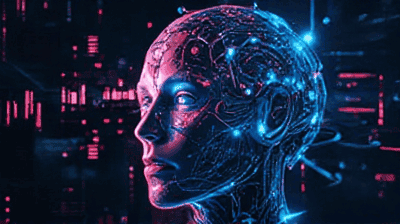
As artificial intelligence continues to evolve, we find ourselves at the crossroads of unprecedented technological advancement and ethical considerations. Autonomous decision-making systems, powered by AI, are now capable of executing tasks ranging from simple data analysis to complex decisions that can significantly impact human lives. With these capabilities come profound questions about the ethical implications of AI systems. Should we fear these autonomous systems? This blog post delves into the ethical landscape surrounding AI, exploring the potential risks, benefits, and the responsibilities of developers and users.
1. Understanding Autonomous Decision-Making Systems
Before diving into ethical considerations, it is essential to understand what autonomous decision-making systems are and how they function.
1.1 Definition of Autonomous Systems
Autonomous systems are AI technologies capable of making decisions without human intervention. They analyze data, learn from patterns, and execute actions based on their programming and experiences. Examples include self-driving cars, medical diagnosis tools, and automated financial trading systems.
1.2 How They Work
Autonomous systems utilize machine learning algorithms, particularly deep learning, to identify trends and make predictions. They process vast amounts of data to optimize decision-making processes, often faster and more accurately than humans can.
2. The Benefits of Autonomous Decision-Making Systems

Despite the concerns, autonomous decision-making systems offer numerous benefits across various sectors.
2.1 Increased Efficiency
One of the primary advantages of AI systems is their ability to process large datasets rapidly. In fields like healthcare, autonomous systems can analyze patient data for faster diagnoses, allowing for timely treatments and better health outcomes.
2.2 Reduction of Human Error
Humans are prone to errors, particularly in stressful situations or repetitive tasks. AI systems can reduce these errors by following prescribed algorithms consistently, which can improve safety in critical areas like aviation and manufacturing.
2.3 Enhanced Decision-Making Capabilities
AI systems can analyze information in ways that traditional methods cannot, revealing insights that might go unnoticed by human analysis. In finance, for example, AI can forecast market trends based on real-time data, assisting investors in making informed decisions.
3. The Ethical Concerns Surrounding Autonomous Decision-Making
As AI systems become more integrated into society, several ethical concerns arise.
3.1 Lack of Accountability
One of the most pressing ethical issues is the question of accountability. When an autonomous system makes a decision that leads to negative consequences, it can be challenging to determine who is responsible—the developer, the user, or the AI itself. This lack of clear accountability poses ethical dilemmas, especially in critical applications such as healthcare or criminal justice.
3.2 Bias in Decision Making
Another significant concern is the potential for bias in AI decision-making systems. If these systems are trained on biased data, they may perpetuate or even amplify existing inequalities and prejudices. For instance, facial recognition systems have demonstrated biases against certain racial and ethnic groups, leading to erroneous identifications and discrimination.
3.3 The Threat to Privacy
Autonomous systems often rely on vast amounts of data, raising concerns about privacy and personal data security. As AI systems collect, analyze, and store sensitive information, individuals may find themselves vulnerable to data breaches or misuse of their information.
4. The Fear Factor: Public Perception of Autonomous Systems

The fear of AI is not unfounded, but much of it stems from misconceptions and lack of understanding.
4.1 The Influence of Media and Pop Culture
Popular media often portrays AI as a threat to humanity, emphasizing scenarios where machines gain autonomy and rebel against their creators. This portrayal can heighten public fear and misunderstanding about the capabilities and limitations of current AI technologies.
4.2 General Mistrust in Technology
Several factors contribute to a general mistrust of technology, including concerns about job displacement and economic inequality. As AI systems increasingly take on roles traditionally performed by humans, there is a fear of losing control over critical decision-making processes.
5. Balancing Innovation and Ethics
Navigating the ethical landscape requires striking a balance between innovation and responsibility.
5.1 Establishing Clear Guidelines
To ensure that autonomous systems are developed ethically, it is essential to establish clear guidelines and regulations. These should address accountability, bias, transparency, and privacy. Incorporating ethical frameworks into the development process will help guide decisions and minimize risks.
5.2 Designing Bias-Aware Systems
Developers should actively work to identify and mitigate biases in their AI systems. This can be achieved through diverse training datasets, ongoing evaluation of system performance, and employing mechanisms to detect and correct biases before deployment.
5.3 Promoting Transparency
Transparency is crucial in building trust in autonomous systems. Developers should strive to make their algorithms and decision-making processes understandable to users, allowing them to assess how decisions are made. This transparency can alleviate fears and foster a more informed public discourse.
6. Case Studies: Real-World Applications of Autonomous Decision-Making

Examining real-world examples of autonomous decision-making systems can help illustrate the ethical considerations at play.
6.1 Autonomous Vehicles
Self-driving cars represent a significant technological advancement but also pose ethical challenges. Questions arise regarding liability in accidents involving autonomous vehicles. Who is responsible if an AI makes a decision that leads to a collision? Additionally, ethical dilemmas emerge regarding the programming of AI in life-and-death scenarios.
6.2 AI in Healthcare
AI has the potential to revolutionize healthcare by assisting in diagnosis and treatment recommendations. However, concerns regarding data privacy and bias in training datasets are paramount. Ensuring that AI systems are equitable and respect patient confidentiality is essential.
6.3 Automated Criminal Justice Systems
Some jurisdictions are using AI systems for predictive policing and risk assessment in sentencing. While these systems can enhance efficiency, they also raise ethical concerns about bias and fairness, given that disadvantaged communities may be overrepresented in the training data.
7. Shaping the Future: The Role of Policy and Education
To mitigate the risks associated with autonomous decision-making systems, policymakers and educators must play a pivotal role.
7.1 Policy Development
Governments should work collaboratively with technologists, ethicists, and other stakeholders to develop policies that guide the ethical use of AI. These policies should address accountability, bias, privacy, and the broader societal implications of AI.
7.2 Public Education and Awareness
Enhancing public understanding of AI technologies is crucial for fostering informed discussions about their use. Educational initiatives can demystify AI, alleviating fears while promoting responsible usage and oversight.
8. Conclusion
As autonomous decision-making systems continue to permeate various aspects of our lives, we must confront the ethical implications they bring. While there are valid concerns regarding accountability, bias, and privacy, it is essential to recognize the potential benefits these systems offer. By establishing clear guidelines, promoting transparency, and fostering a culture of ethical responsibility, we can harness the power of AI while addressing the fears it evokes. The future of AI does not have to be one of fear, but rather one of thoughtful innovation that prioritizes ethical considerations and the well-being of society.








